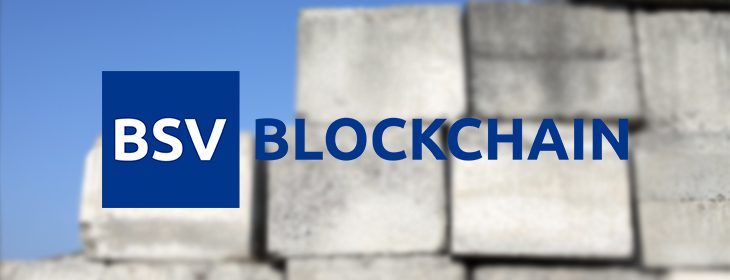New 1.25GB, 2GB record blocks prove BSV's economic model

700597: Remember that number. It’s the block number of one of BSV’s biggest block yet at almost 1.25GB, but that’s the less important part. The thing that makes block 700597 special is, it’s the first Bitcoin block to earn its processor a higher return in transaction fees (6.33 BSV) than the block subsidy (6.25 BSV). Even in these “early days,” BSV is proving its economic model works.
Before anyone had time to catch their breath, BSV smashed even that record with block 700606, which came in around 2GB and generated over 10 BSV in transaction fees.
Block 700597 was processed (or “mined”) by SVPool at 1:38 p.m. UTC on August 16, 2021. It contained 4,546 transactions and was 1,247,906,363 bytes in size. Most importantly, it generated 6.33025237 BSV (around US$1,074) in fees—higher than the 6.25 BSV block subsidy processors receive for verifying a Bitcoin transaction block.
If you’ve been noticing some extra large blocks on the BSV network recently, there’s a reason for it. The BSV protocol, like Bitcoin as it was initially released, has no hard-coded limit on how large blocks may be. Instead, processors set their own “soft caps” according to their technical capabilities. Processors SVPool and TAAL Distributed Information Technologies Inc. (CSE:TAAL | FWB:9SQ1 | OTC: TAALF) both lifted their block caps to prove it was possible.
It was just last week BSV celebrated its largest block at just under 1GB, though we predicted soft caps would rise further, allowing for many more records to be broken in the near future. That is now happening.
For some more context, the main argument that formally split the Bitcoin community in 2017 was over whether the Bitcoin network could, or should, raise the limit of its block size. The “small blockers,” who now control the BTC network, argued that a Bitcoin block should be 1MB (yes, megabytes). They begrudgingly agreed to a “deal” to raise it to 2GB by the end of the year, before reneging.
Bitcoin’s blockchain, they said, should serve as a “settlement layer” for transactions that happen off-chain, on “second layer” networks. The unreliable Lightning Network is the best-known attempt at a proof of concept for this. To marginally increase the number of transactions per block, BTC fundamentally altered Bitcoin’s protocol and economic rules by introducing segregated witness (SegWit), which removed digital signature data from the transaction data they corresponded to.
When miners/processors complained that limiting the block size (now called “block weight” on BTC) would result in lost income, they were told that users would pay a premium for transaction fees instead. This went against everything Bitcoiners had promised in the preceding years, and today BTC fees for a single transaction can be high enough to make banks and Western Union blush.
That’s not the model BSV, Bitcoin, or Satoshi Nakamoto wanted. Bitcoin should focus on high transaction volumes, a large (data) capacity network and cheap fees. That way, everyone could be satisfied: users could pay a single cent for regular payment transactions, while high-volume data applications could work out deals with processing operations to pay even less, generating millions of transactions a day.
Meanwhile, even die-hard BTC adherents continue to grumble about $20-$60 fees for single transactions (no matter what amount of money they’re sending) and transactions being dropped because the blocks were too full. BTC’s price may boom, but many users find those are the times it’s virtually impossible to actually send anything.
Blocks 700597 and 700606 exist now as proof that transaction processors can earn more in fees than the block subsidy, by verifying blocks containing thousands of transactions. It’s important to note also that the Bitcoin SV Node Team is completely re-architecting the protocol software (while strictly maintaining its “set in stone” rules) to create Teranode, which when activated will make this past week’s records seem puny by comparison.
Watch: Teranode Live Demo Showing 50,000 TPS on BSV Blockchain
Source: Read Full Article
